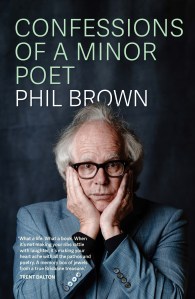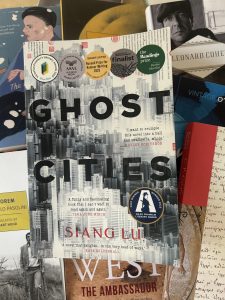Reading between the lines: Why I relish revisiting literary classics
It’s hard to find the time for contemporary literature when there are such riches to be discovered in the literary past.

What are you reading? I hope it’s okay to ask that. It’s not as creepy as asking, what are you wearing? Although feel free to share that, too, if you feel so inclined.
I do find it fascinating to see what people are reading and I’m sure a psychologist could do a psychological profile of you by studying your reading habits.

I have books on my bedside table and a pile on a table nearby, which I am going through book by book. Sadly, there’s not much contemporary fiction there, although there is a copy of Ghost Cities by Siang Lu, a local writer published by UQP, who picked up the Miles Franklin Award this year.
I’m reading that soon. Is it shocking to confess that, in general, I don’t care for new novels? I am, as Jethro Tull once sang, “living the past”, but I don’t mind. There are such riches there to discover and rediscover. I guess if you just read for enjoyment rather than edification you would find plenty of contemporary fiction attractive. I read for some enjoyment but mostly to educate myself.
So, I’m working my way through the canon and reading backwards, if you like. There’s a lot to get through and one has to calibrate how much time one has left. Some years ago, I picked up some lovely Folio Society volumes at Bent Books in West End. These pre-loved volumes, including The Analects of Confucius, came into the store from the estate of a rather literary man who was storing these books up to read in retirement.
You might like
So, I have been digging into mainly 20th century literature lately
When he died unexpectedly, I guess his wife wasn’t sure what to do with them so they ended up on the shelves at Bent Books and some of them found their way into my library. That’s a cautionary tale, if ever I’ve heard one, and it convinces me that if you’re not getting anything out of a book, quickly discard it and move on. Time is precious.
So, I have been digging into mainly 20th century literature lately. The journey I am on kind of started with a visit to Paris and a re-reading of Ernest Hemingway’s A Moveable Feast. That’s his Paris book. In it he mentions the poet and author Blaise Cendrars, who he accuses of trying too hard for the sympathy vote by having his empty sleeve pinned to his chest when Hemingway spots him in a Paris café. As it happens, Cendrars lost an arm in World War One. Hemingway thought he was making too much of it, which may have been a bit mean.
But this led me to read Cendrars at last. His novel Moravagine is a classic – darkly funny and grotesque at times. I also bought a book of his poetry, which is amazing. He was Beat before the Beats were.
Eventually, this train of thought and reading led me to The Autobiography of Alice B. Toklas by Gertrude Stein. It’s Stein writing her own life, supposedly through the eyes of her companion, Alice. Stein’s Paris salon attracted the most incredible retinue of famous creatives and that salon features in Woody Allen’s film Midnight in Paris, you may recall. Kathy Bates plays Stein quite brilliantly in the film.

Subscribe for updates
Stein was the centre of gravity around who orbited the likes of Picasso, Matisse, Hemingway, F. Scott Fitzgerald, T.S. Eliot – anyone who was anyone in the field of art and literature. The book is name dropping in the most literary fashion – and it’s fascinating stuff.
Another Paris novel I read recently was Henry Miller’s Tropic of Cancer. I may have read it when I was young but I felt it deserved another go and it is pretty obscene at times, which attracted a lot of readers to it over the years.
Another writer I have been investigating is the Italian poet and filmmaker Pier Paulo Pasolini. I love his films, particularly The Gospel According to St Matthew (best Biblical movie ever made) and Accattone. He is also an amazing writer and poet. I have recently read another Italian too, Alberto Moravia Moravia, who is best known for his debut novel The Time of Indifference (1929) and for the anti-fascist novel The Conformist (1947), the basis for the film The Conformist (1970), directed by Bernardo Bertolucci. I have recently read his novel Boredom, which is great, and I have his novel Contempt on the pile as well. Don’t you love his titles?
I’m going to be busy. There are also some John Wyndham books I am soon to re-read, including his classic The Kraken Wakes. I have the poems of C.P. Cavafy and a couple of books of poetry by Leonard Cohen. A visit to his former home, the Greek island of Hydra, inspired me to re-read him and to listen to his music again, which I am now doing. Nikos Kazantzakis’s Zorba The Greek is also in the queue.
There’s also Thomas de Quincey’s Confessions of an English Opium-Eater. Is that obscure enough for you? I have never read it but I was aware of it and it kind of inspired the title of my recent memoir, Confessions of a Minor Poet. But no, I have never eaten opium.
Phew. It’s a lot, right? So, I’m actually just reading something for fun right now before my next plunge into “Big L” literature. I have a copy of Morris West’s novel, The Ambassador. This Aussie author wrote some amazing books including the classics The Devil’s Advocate and The Shoes of the Fisherman.
I interviewed West once in Brisbane when he was doing a book signing at Myer, back in the days when department stores did such things. He was a wonderful man and incredibly productive and his novels are so entertaining.
After that I’m not sure what is next. It will depend on how the spirit moves me, I guess, but it might well be those Cavafy poems.
What’s next on your reading agenda? Unless you agree with Philip Larkin, who finished his poem A Study of Reading Habits with this line: “Books are a load of crap.” He was joking, though, wasn’t he?
Free to share
This article may be shared online or in print under a Creative Commons licence

